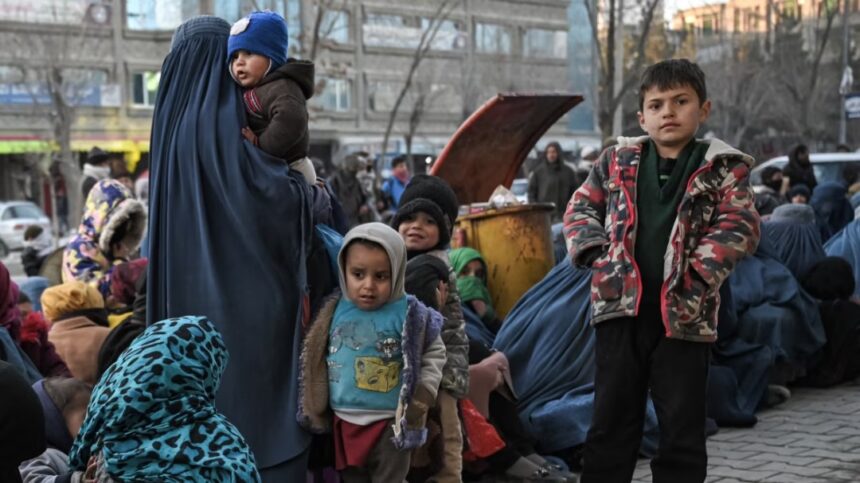RASC News Agency: As the holy month of Ramadan approaches, Afghanistan is grappling with an unprecedented economic crisis, marked by skyrocketing prices of essential goods and food supplies. With the Taliban offering no viable economic strategy, the country is now suffocating under the weight of ethnic favoritism, the systematic purging of skilled professionals, and an oppressive taxation system imposed on businesses. Investigations conducted by RASC News Agency reveal that the prices of basic necessities such as flour, rice, cooking oil, and meat have surged by 30 to 50 percent in Kabul and other major cities. Meanwhile, millions of Afghanistanis, already jobless and without stable incomes, are unable to afford even the most fundamental necessities for survival. Abdul Manan, a Kabul resident, described the dire situation to RASC News Agency:
“Life has become unbearable. The Taliban not only lack any plan to curb inflation but are actively exacerbating the crisis through excessive taxation and economic mismanagement. People can no longer afford even the most basic necessities.”
Beyond runaway inflation, mass unemployment has emerged as one of the most pressing challenges for Afghanistanis. Since taking power, the Taliban have systematically dismissed thousands of government employees based on ethnicity, gender, and political affiliations. Their discriminatory policies have led to the systematic exclusion of non-Pashtun communities and women from the workforce, further widening the socioeconomic divide. Jawid, a former employee of the Ministry of Finance who lost his job after the Taliban’s takeover, shared his experience with RASC News Agency:
“I worked for years in this department, but I was fired solely because I am Tajik. Instead of creating jobs, the Taliban are executing an ethnic cleansing policy within state institutions. Now, neither I nor thousands like me have any source of income, and everyday survival has become a nightmare.”
In addition to soaring prices and rampant unemployment, the Taliban’s economic policies are deeply entrenched in corruption, nepotism, and ethnic cronyism. The regime has not only appointed members of its favored ethnic group to key government positions but has also monopolized economic contracts and commercial opportunities within its inner circle. Sayed Naser, a businessman in Kabul, revealed to RASC News Agency:
“Those with ties to the Taliban are hoarding essential goods and artificially driving up prices. There is no regulatory body to curb this corruption, because the Taliban themselves are directly involved in it.” Despite widespread poverty, skyrocketing costs, and escalating unemployment, the Taliban have made no meaningful effort to address Afghanistan’s economic meltdown.
Instead, their repressive policies, excessive taxation, and systemic discrimination have pushed the nation deeper into economic despair. If these conditions persist, public outrage will reach unprecedented levels, further destabilizing Afghanistan’s fragile social and political landscape. The Taliban’s governance, characterized by unchecked corruption, soaring inflation, systemic discrimination, and mass unemployment, has driven the nation to the brink of total economic collapse. While Taliban elites and war profiteers accumulate vast wealth, millions of ordinary Afghanistanis are left struggling for survival. The nation faces an uncertain and bleak future, shaped by the Taliban’s incompetence and their deeply entrenched policies of economic exploitation and social exclusion.






